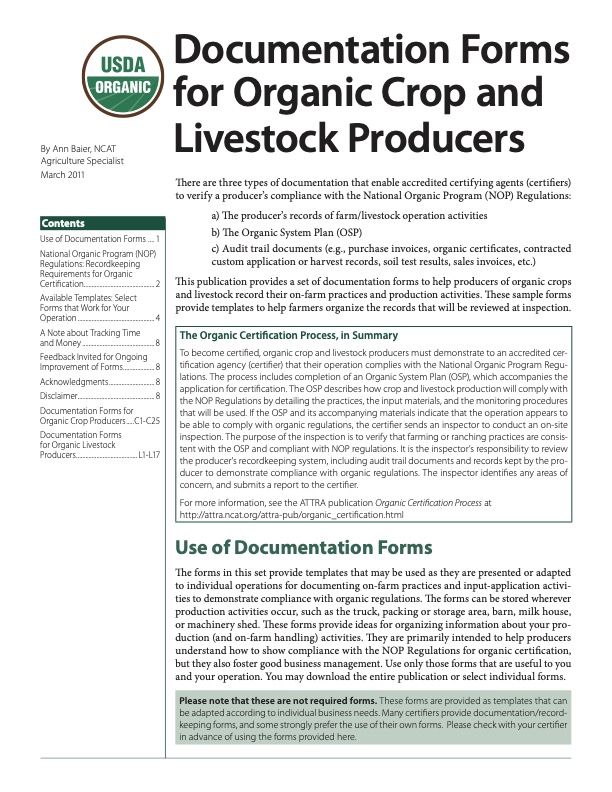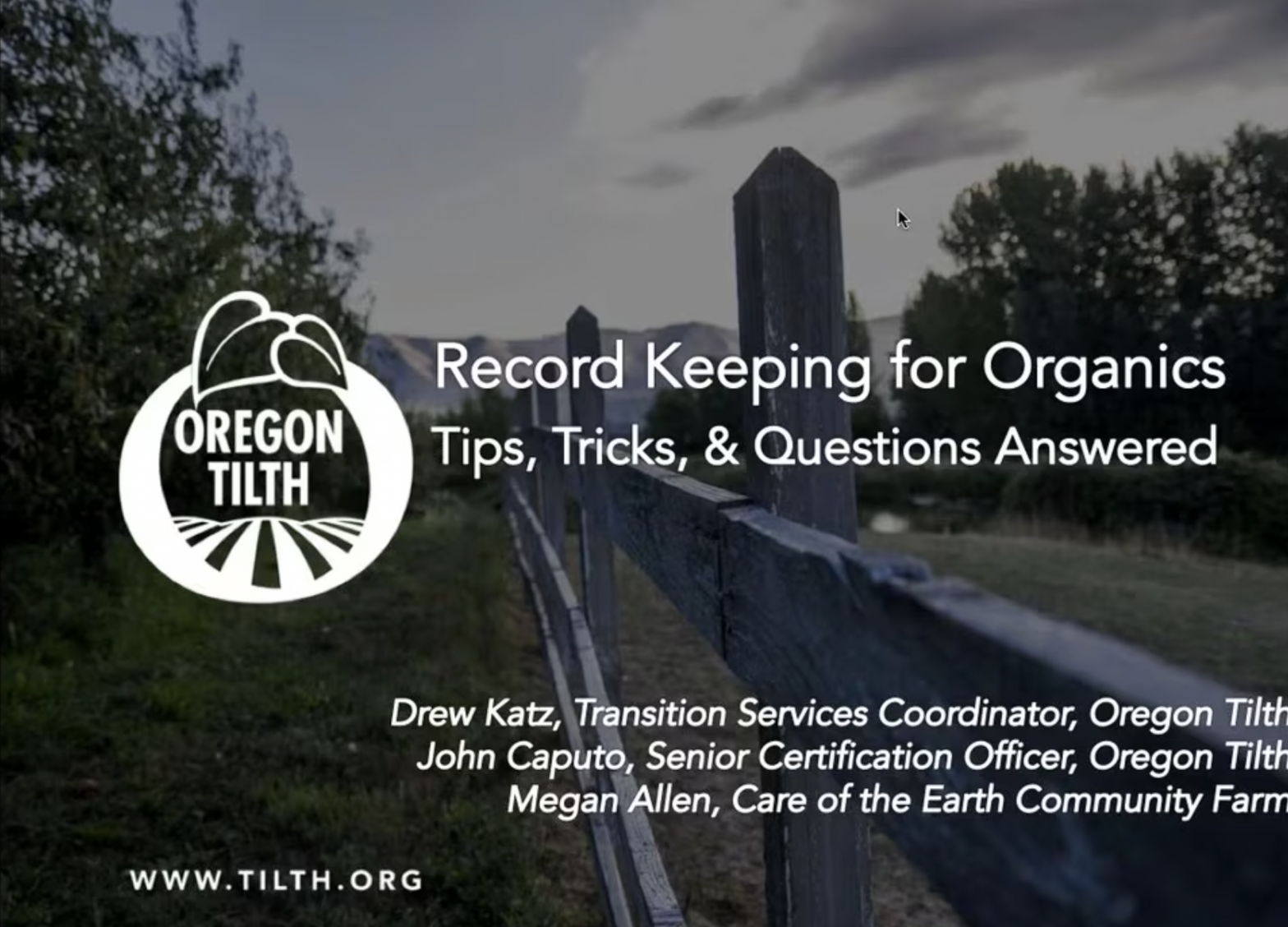On this special edition of the Tractor Time podcast, hosted by Taylor Henry, CEO of Acres U.S.A, we delve into sustainable farming, regenerative practices, and organic certification with guest Sam Welsh from OneCert, Inc. Sam Welsh shares his journey from executive director at OCIA to founding OneCert in 2003 and its growth to include a… Continue reading Podcast : From Soil to Certification – The Organic Journey with Sam Welsh
Resources Category: Recordkeeping for Organic Certification
Evaluating Organic Transitions at the Field Level
This publication provides information on making plans to transition to organic crop production. It helps outline the need for a transition crop plan, the importance of individual crop budgets, and evaluating results.
Making the Transition from Conventional to Organic
Farming organically allows producers to incur many economic and social advantages compared to farming conventionally. Understanding and planning the economic returns of the transition process can aid the producer in planning and in becoming organically certified.
Iowa State University Extension Fundamentals of Organic Agriculture
Detailed information on organic agriculture including history, legalities and logistics, labeling, marketing, and pest and weed management. Includes two field examples on organic soybean and apple production.
Recordkeeping Requirements Fact Sheet
Fact sheet on recordkeeping requirement for organic certification
Recordkeeping for Organic Certification
Keeping accurate records is crucial for any business. Find out what types of records are required for organic certification and how they will be evaluated during the certification process.
DOCUMENTATION FORMS FOR ORGANIC CROP AND LIVESTOCK PRODUCERS
There are three types of documentation that enable accredited certifying agents (certifiers) to verify a producer’s compliance with the National Organic Program (NOP) Regulations: a) The producer’s records of farm/livestock operation activities b) The Organic System Plan (OSP) c) Audit trail documents (e.g., purchase invoices, organic certificates, contracted custom application or harvest records, soil test… Continue reading DOCUMENTATION FORMS FOR ORGANIC CROP AND LIVESTOCK PRODUCERS
Recordkeeping Case Study: Seed Search Documentation and History
With support from the U.S. Department of Agriculture’s Agricultural Marketing Service, National Organic Program, Oregon Tilth developed a series of farmer-to-farmer case studies on best practices in recordkeeping. The records of a certified organic farm’s operations and activities demonstrate where promise and practice meet for an inspector and certifier. An annual mandatory inspection examines the… Continue reading Recordkeeping Case Study: Seed Search Documentation and History
Audit Trail: A Sample Documentation Process
One of the core practices of your certified organic operation is developing good quality record-keeping and documentation (commonly referred to as an “audit trail”). Use this tool as an example when developing the documentation process for your operation.
Recordkeeping for Organics: Tips, Tricks, and Questions Answered
This webinar video helps producers understand what records are required to apply for organic certification. We also share “sound and sensible” recordkeeping practices that producers can implement to demonstrate organic compliance to inspectors and certifiers.

